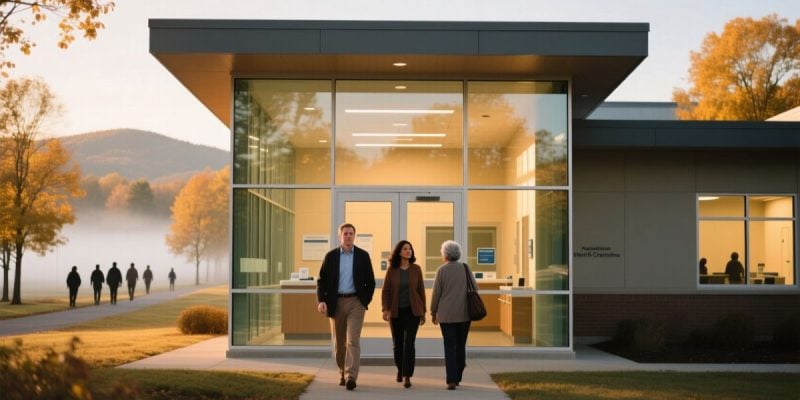Addiction Professionals of North Carolina (APNC) has opened two new centers to address the growing challenge of gambling addiction and the shortage of qualified behavioral health professionals in the state.
Funded by a grant from the North Carolina Division of Mental Health, Developmental Disabilities, and Substance Use Services, the Center of Excellence for Gambling Addiction Policy and Practice (CEGAPP) and the Professional Development Center (PDC) aim to tackle these dual crises.
The growing need for responsible gambling services in NC
Sports betting, legalized in North Carolina in March 2024, has been available for over 18 months, with eight online sportsbooks and three tribal casinos operating statewide. This increased accessibility has heightened the risk of problem gambling, underscoring the need for responsible gambling initiatives. APNC CEO Sara Howe noted, “Gambling is the most easily accessible addiction today,” yet historical data shows it has been inadequately addressed.
The urgency is evident in recent statistics: in the six months following legalization, calls to gambling helplines surged by nearly 80%, and treatment referrals have risen significantly. North Carolina’s 2024-2029 strategic plan identifies addressing problem gambling and strengthening the behavioral health workforce as core priorities. However, the state faces a shortage of qualified providers, risking burnout and unequal access to care.
Treatment centers tackle gambling addiction and workforce gap
The two centers work complementarily to address gambling addiction and workforce challenges:
- CEGAPP equips providers with specialized skills and advocates for stronger policies to promote responsible gambling and mitigate addiction risks. It leads statewide efforts by training addiction professionals in prevention, treatment, and recovery strategies; raising public awareness of gambling harms; and offering policy guidance to enhance regulation and recovery support.
- PDC tackles the human resource crisis in addiction services. Providers in North Carolina face overwhelming caseloads and limited training opportunities. In an Addiction Professionals of North Carolina press release, APNC Executive Vice President Morgan Coyner emphasized that recruitment alone is insufficient: “Workers require mentorship, skills development, and opportunities for growth.”
The PDC offers basic and advanced training in communication, professional etiquette, workplace habits, leadership, and supervision. It also connects experienced leaders with emerging professionals to foster retention and growth.
Strategic push for responsible gambling and workforce in NC
APNC’s dual approach positions it as a key driver in enhancing North Carolina’s behavioral health capacity. Gambling addiction is a significant public health concern, while workforce instability is a structural issue. Without competent professionals, even well-funded programs cannot succeed. By addressing both issues concurrently, APNC integrates workforce development, training, prevention, and policy into a unified initiative.
However, success depends on sustained investment and accessible, practical training for providers. Coordination with initiatives like the North Carolina Problem Gambling Program is essential to avoid inefficiency and maximize impact. APNC must also develop strong metrics to demonstrate the centers’ value to policymakers and the community.
North Carolina’s proactive step against gambling addiction
As CEGAPP and PDC begin operations, stakeholders will watch whether APNC can translate its ambitious goals into measurable results. If successful, this model could serve as a template for other states facing similar challenges.
APNC’s proactive initiative demonstrates North Carolina’s commitment to addressing the crisis, investing in a healthier, better-prepared future through two centers with complementary missions.









